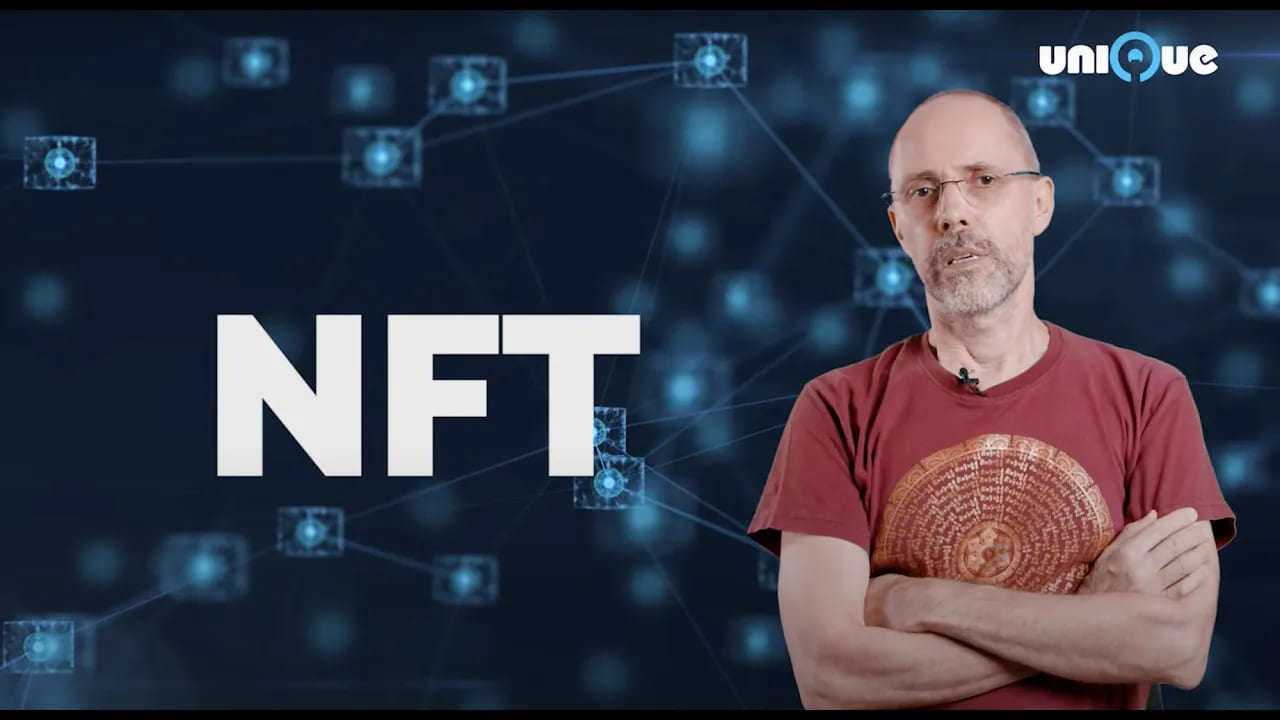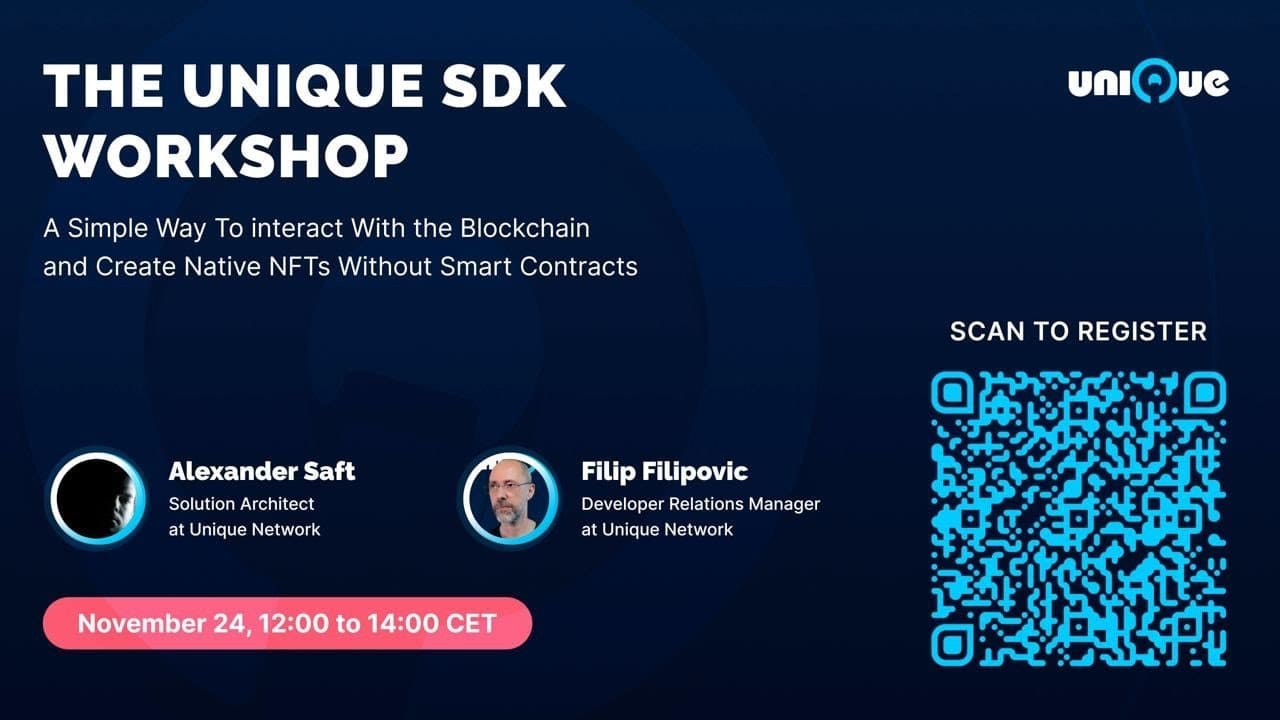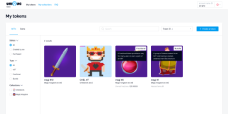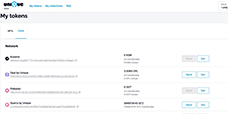The majority of the NFT market currently uses "NFT 1.0" or Static NFTs, which have been instrumental in popularizing the non-fungible token concept. They have converted millions of people into NFT traders and introduced many others to the world of NFTs. Essentially, static NFTs are one-of-a-kind digital items or collectibles on the blockchain, typically traded on NFT marketplaces.
Collections such as The Bored Ape Yacht Club (BAYC) and CryptoKitties have demonstrated the immense potential of static NFTs. BAYC, with its distinctive and individually crafted ape characters, created a community of NFT enthusiasts and collectors, driving a surge in interest and value. CryptoKitties, one of the earliest NFT projects, showcased how people could buy, sell, and breed unique virtual cats, sparking creativity and engagement within the NFT ecosystem.
Despite their initial successes, static NFTs face notable limitations that have begun to hinder their growth and dampen hopes for global adoption. These limitations include:
- Lack of Interactivity: Static NFTs, by definition, are unchanging digital assets. Their lack of response to external stimuli or user interactions limits their use cases to mere ownership for display, thereby missing out on the potential for dynamic and engaging experiences.
- Limited Utility: Static NFTs often lack real-world utility beyond their collectible value. When people own digital art or collectibles, they sometimes have to allow access to extra content or experiences, which makes them less appealing to a wider audience.
- Scalability Issues: As the NFT space has grown, congestion on blockchain networks, like Ethereum, has led to high gas fees and slow transaction times. Static NFTs, which rely on these networks, have felt the strain of these limitations.
The token industry is moving beyond static NFTs to embrace dynamic NFTs, which offer new possibilities for creators and users alike. This buildout is crucial to the future of NFTs, and we'll explore how in the subsequent sections of this article.
The Evolution of NFTs: Dynamic and Interactive NFTs
As the NFT ecosystem matures and the industry begins to look for utility over collectibility, we see a rise in dynamic and interactive NFTs. The functionality and engagement provided by these tokens surpass what static NFTs can offer.
Dynamic NFTs, also known as NFT 2.0, are NFTs that can change or respond to external factors. Unlike static NFTs, which remain unchanged after minting, dynamic NFTs can adapt and evolve in response to input or other programmable factors, opening up a world of possibilities.
Applications in Gaming and Virtual Worlds
One of the most promising applications of dynamic NFTs lies in the gaming industry and virtual worlds. Game developers are now exploring the integration of NFTs to create in-game assets with real-world value. Players can own, trade, and modify these assets, providing a new level of ownership and uniqueness within virtual gaming environments.
Adopting dynamic NFTs in gaming and virtual worlds can bridge the gap between the digital and physical worlds, as players can have actual ownership of in-game assets with real-world value.
Examples of interactive NFT Projects:
- Sorare: On this game, users can collect, trade, and manage fantasy football teams. The real-life performance of the players represented by NFTs affects the team's in-game performance.
- Unique Network: As an infrastructure network for NFT integrations, Unique offers a variety of use cases, including digital fashion. For example, we partnered with AngelHack to launch a redeemable NFT collectible series that rewarded developer experiences with tangible value and social signals in the form of Soulbound nested NFTs and redeemable NFTs.
Venturing beyond the ordinary
While NFTs are primarily known for their use in art and collectibles, new applications are beginning to show the immense potential of dynamics to expand NFT use cases, enhance user engagement, offer new monetization possibilities for creators, and facilitate data ownership. For instance, there are several ways in which dynamic NFTs can be helpful for data ownership, including:
- Universities could tokenize student transcripts as NFTs and give each student a unique token. This option would allow students to share their transcripts with potential employers or graduate schools easily.
- NFTs, representing intellectual property like copyrights, trademarks, and patents, offer a means for creators to safeguard their work and guarantee fair compensation for its utilization.
- NFTs can create in-game items with real-world value, offering gamers more control over their gaming experience and simplifying item trading.

The Future Landscape of Data and NFTs
Data is frequently called the "lifeblood" of the digital age, yet issues surrounding data privacy, security, and ownership persist. NFTs present a fascinating solution by providing a transparent and immutable record of data ownership.
By tokenizing data into NFTs, individuals and organizations can establish ownership and control in a decentralized and trustworthy way. This alternative is significant because personal data is often misused, resulting in breaches and privacy violations.
NFTs enable a new paradigm of data monetization.
Content creators, researchers, and businesses can tokenize and sell their digital content to interested parties. This direct data marketplace eliminates intermediaries, allowing for fair compensation and fostering innovation. For instance, researchers could tokenize their datasets, and other scientists could purchase and build upon them, accelerating scientific progress.
NFTs enhance data provenance and authentication.
For fields such as journalism, academic research, and historical archives, they can help establish the authenticity and origin of data, which is essential in combating misinformation and maintaining trustworthiness. In today's world, where deepfakes and manipulated content threaten the integrity of information, this is of utmost importance.
NFTs incentivize data sharing.
Programmers can design smart contracts to reward data contributors when their data is used or accessed. This encourages collaboration and sharing of valuable information.
In conclusion, NFTs can play a transformative role in the future of data as they could provide a secure, transparent, efficient data ownership, monetization, and verification framework. As society grapples with data-related challenges, NFTs offer a promising solution to empower individuals and organizations while fostering innovation and trust in the digital landscape.
The Next Frontier for Data-Driven Applications in the Global Economy
In recent years, NFTs have transcended their origins in the art world to find innovative applications in data-intensive industries such as healthcare and finance. This section explores how NFTs are revolutionizing data utilization in these sectors.

Healthcare: Preserving and Sharing Medical Records
SECURE MEDICAL DATA OWNERSHIP:
NFTs empower patients to take control of their medical records. Each medical document can be tokenized as an NFT, giving patients ownership and authority over who accesses their sensitive health information. This process enhances privacy and data portability, putting individuals in charge of their healthcare information.
INTEROPERABILITY:
NFTs bridge the gaps between various fragmented healthcare systems. Patients can use NFTs to seamlessly share their medical history and records with different medical professionals, improving the quality of care and reducing administrative hurdles.
RESEARCH AND DEVELOPMENT:
NFT tech can be employed to incentivize and track contributions to medical research. Researchers and donors can receive NFTs representing their contributions, promoting transparency and collaboration within the medical community.
Finance: Tokenizing Assets and Data
ASSET TOKENIZATION:
NFTs can represent ownership of assets such as virtual real estate (or physical real estate), art, or stocks. This innovation could revolutionize the real estate and investment industries by streamlining asset management, trade, and ownership transfer.
DATA-BACKED FINANCIAL INSTRUMENTS:
Capitalists now have the option to purchase NFTs that represent specific data sets. This presents new opportunities for lending and investment based on the credibility of the data.

IDENTITY VERIFICATION:
NFTs can serve as a secure means of identity verification. Users can own NFTs tied to their identity, reducing fraud in financial transactions while preserving user privacy through selective disclosure.
Data-driven NFTs can play a role in most if not all, consumer, business, or service industries. In retail, manufacturing, and logistics, NFTs have diverse applications, including inventory tracking, supply chain management, and customer service.
While the potential applications for data-driven NFTs are numerous, they also raise essential data privacy concerns. Since NFTs rest on a public ledger and digital wallets, personal information like names, addresses, and medical information can be publicly accessible.
Examining Data Privacy Concerns with NFTs
The proliferation of NFTs raises questions about how data will be handled, stored, and protected as they incorporate sensitive information and personal data. The decentralized nature of blockchain technology, while offering security advantages, also poses challenges in ensuring robust data privacy.
Striking a balance between harnessing the potential of data-driven NFTs and safeguarding individuals' privacy rights will be a crucial task in the evolving landscape of digital assets.
Here, we analyze the critical privacy challenges associated with NFTs:
Ownership Transparency
Often considered a positive feature of blockchain and digital asset technologies, ownership transparency can also raise significant data privacy concerns. This term refers to the ability to trace and publicly view the ownership history of unique digital assets like NFTs.
While transparency can enhance trust and provenance in the digital world, it can expose individuals to unwanted scrutiny and surveillance. There may be instances where users prefer not to make their ownership or transaction history easily accessible, as it can tell personal details and financial practices or risk their confidentiality.
Finding the appropriate balance between transparency and privacy when constructing and executing blockchain-based systems (and data-driven NFTs) is essential.
Metadata Vulnerabilities
These vulnerabilities pose a significant data privacy concern because they often contain hidden, sensitive information that can be inadvertently shared or exploited.
While the actual content of a file or message might be encrypted or protected, metadata can reveal critical details such as the sender, recipient, timestamps, geolocation, and even editing history. Hackers and malicious actors can use this information to track individuals, launch targeted attacks, or piece together a comprehensive profile of someone's online activities.
Smart Contract Risks
While hailed for their efficiency and transparency, smart contracts can also introduce data privacy concerns. These self-executing contracts are often encoded on public blockchains, meaning the terms and conditions, transaction details, and even sensitive data can become publicly accessible.
Even though blockchains provide immutability, the transparency of data on these contracts could expose personal and confidential information. It is crucial to carefully manage the data in these contracts to mitigate the risks associated with data exposure and breaches, ensuring that sensitive data remains confidential.

Innovating Data Security for NFTs
The NFT ecosystem is developing innovative solutions to enhance data security. We examine the latest techniques:
ZERO-KNOWLEDGE PROOFS
Zero-knowledge proofs (ZKPs) offer a powerful solution to bolster data security for NFTs. In NFTs, ZKPs enable users to prove possession authenticity and verify specific properties of an NFT without revealing personal details or metadata.
By implementing ZKPs, NFT platforms can enhance data privacy, protect users from potential breaches, and ensure that only essential information is shared on the blockchain, preserving the confidentiality of data while maintaining the integrity of the NFT ecosystem.
OFF-CHAIN STORAGE
Off-chain storage is a form of blockchain tech employed to enhance data security for NFTs. Instead of storing all the information related to an NFT directly on the blockchain, off-chain storage involves keeping specific data, especially sensitive or large files, outside the blockchain network. This approach reduces the risk of exposing confidential information to the public ledger, improving data privacy. Off-chain storage solutions might utilize decentralized storage platforms, encrypted databases, or cloud storage, ensuring that only authorized parties can access and retrieve the data associated with a cryptographic token.
Decoupling data storage from the blockchain, off-chain storage strengthens data security, preserving the integrity and privacy of NFT-related information while benefiting from the blockchain's inherent advantages.
DECENTRALIZED IDENTIFIERS (DIDS)
DIDs are unique, globally resolvable, persistent identifiers not tied to any centralized registry or authority. When applied to NFTs, DIDs can serve as a secure means of linking digital assets to their owners while preserving data privacy. Picture a digital certificate.
Associating a DID with an NFT, digital ownership, and provenance information can be cryptographically secured on a blockchain. By doing this, the owner of the DID gains control over their NFTs, which strengthens data security and reduces the risk of unauthorized access or manipulation. DIDs also enable selective disclosure of information, allowing NFT owners to share specific details while keeping the rest of their identity and data private.

Unique Network's Future NFT Strategy
At Unique, we are pioneering the future of NFTs with a forward-thinking vision: to be the go-to destination for projects looking to mint a remarkable volume of NFTs, from 5,000 to 100,000 NFTs daily.
To turn this vision into reality, Unique Network significantly emphasizes advanced integrations. We understand that sheer quantity alone is not enough. To truly empower our users, we focus on enabling them to unlock the potential of their NFT data through innovative structuring techniques such as fractional ownership to add depth and value to their tokens.
Our commitment to these advanced integrations ensures that NFTs minted on Unique Network aren't just tokens but dynamic assets poised to redefine how we create value. Join us as we redefine the NFT landscape and virtual world.
NFTs Lead the Data Revolution Toward a Tokenized Future
Non-fungible tokens (NFTs) have the potential to revolutionize the data economy by transforming data into a tradable asset class. As unalterable, verifiable, and decentralized data packets that can be stored on the blockchain, NFTs represent data ownership and facilitate data exchange between parties.
Decentralized data marketplaces are also on the horizon, promising to revolutionize how we exchange data. These marketplaces use NFTs to create a secure and transparent way to trade data. This shift will reduce reliance on centralized data intermediaries, giving data owners more control over their data and fostering trust within the data ecosystem.
Within this shifting environment, NFTs have the power to democratize data access on a global scale. Individuals will gain greater autonomy over their data, determining how, when, and with whom it is shared. This inclusivity and empowerment promises to usher in a more equitable data economy.
In summary, NFTs are poised to reshape the data economy by establishing data as an asset class, facilitating secure decentralized data exchange, and championing global data accessibility, thus ensuring a promising future for data in the digital age.
Reading this far; what do you think? Will the growing intersection of data and NFTs revolutionize how we value, authenticate, and exchange digital assets, or are these technologies simply a fleeting trend with limited real-world impact?
Build with Unique Network
Are you an artist, developer, or producer diving into the exciting world of Non-Fungible Tokens (NFTs)? Look no further! Unique Network offers a comprehensive and sustainable ecosystem that empowers you to maximize the value and impact of your digital creations. Build nested, customized, or dynamic NFTs quickly to add utility to your assets or collections.
With multiple tools and features suited to creating, minting, selling, earning, or generating unique NFT relationships, Unique Network is your one-stop destination for all things NFT-related. Get in touch for more support.












 by
Unique Network
by
Unique Network